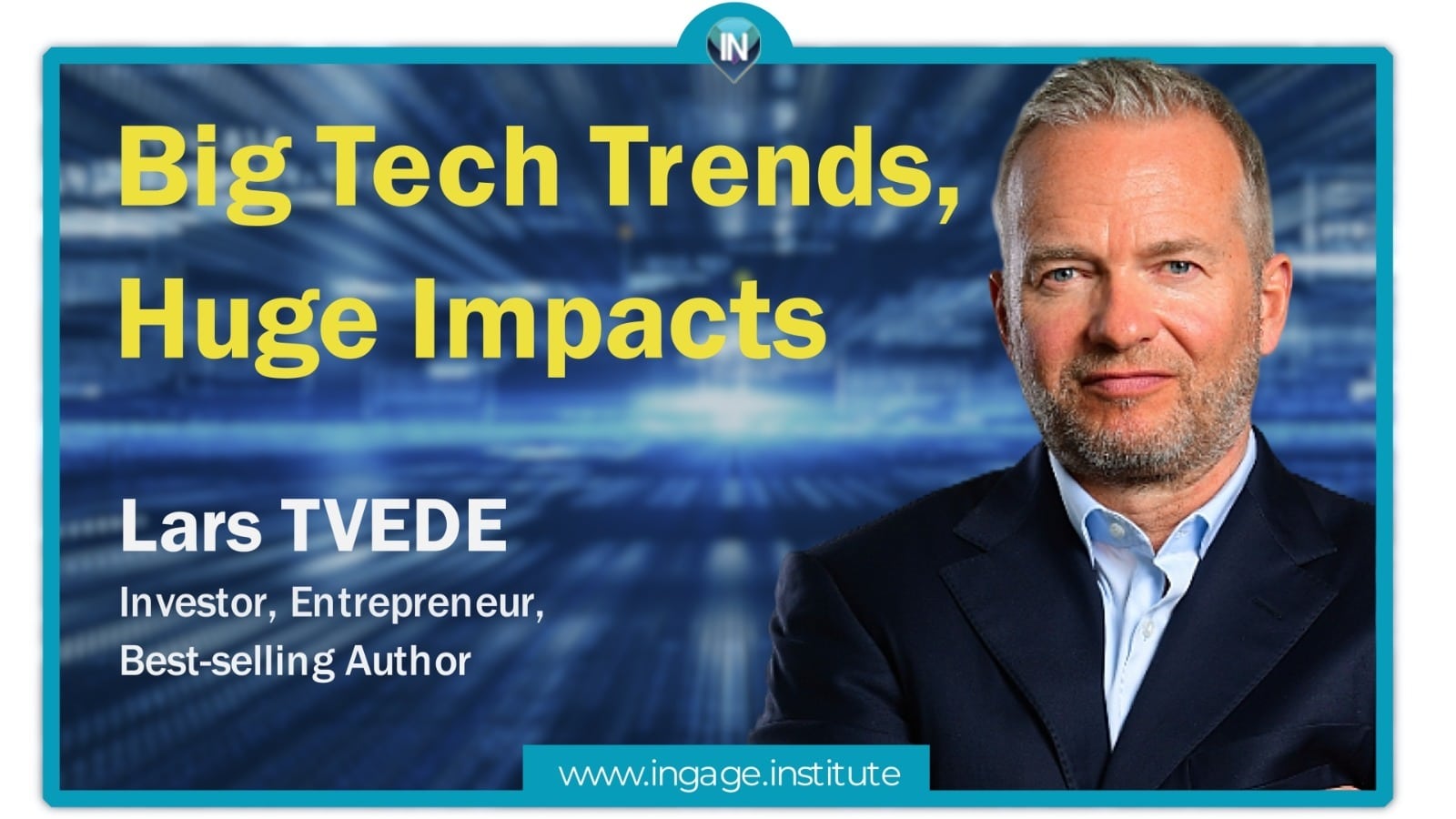The technologies of the future promise enormous progress, but they also bring new risks. In this interview, Danish investor and author Lars Tvede categorizes the major trends from energy to nutrition and artificial intelligence.
According to Lars Tvede, a new era has been established since the 1980s, he says in the interview with The INGAGE Institute: the precision economy. Instead of consuming more and more resources, technologies are becoming smaller, more efficient and more precise. A smartphone that fits in every trouser pocket today would have filled an entire house in 1980.
This change is particularly visible in agriculture. Vertical farms or meat from bioreactors could reduce land requirements by up to 95% – with enormous consequences for the environment, financial markets and global food security.
Energy: wishful thinking and reality
Tvede sees little reason for optimism when it comes to the energy mix. Despite trillions being invested in solar and wind power, the proportion of fossil fuels remains almost unchanged at over 80 percent.
The problem is that many renewable technologies consume huge amounts of land and metals. “We are replacing compact solutions such as gas or nuclear power with huge, resource-intensive plants,” says Tvede. His thesis: a real breakthrough is only possible with new nuclear technologies that are modular, safer and faster to build than their predecessors.
Artificial intelligence: the next revolution
Tvede sees an even greater role for artificial intelligence. According to his assessment, it could become one of the “top 10 human innovations” – alongside fire, electricity and the internet.
Particularly revolutionary: AI systems develop hypotheses, generate new knowledge and accelerate research and product development. “We are currently experiencing the beginning of recursive intelligence – intelligence that creates new intelligence.”
Blockchain: more than just Bitcoin
Tvede sees blockchain as following a classic hype curve: exaggerated expectations are followed by disillusionment before sustainable applications break through. He sees particular potential in smart contracts that can automate insurance or supply chains, for example.
Education under pressure
A final point that is close to Tvede’s heart is education. In times of exponential innovation, content is becoming outdated faster and faster. “The technical knowledge that students learn today is often outdated after just three years.” Instead of long curricula, schools, universities and companies need further training and short learning cycles.
Tvede paints a picture of a future in which efficiency, compactness and AI dominate. However, it remains questionable whether humanity will manage the energy transition in time.
Binci Heeb
See and read also: Securing the Future: How Insurance is Driving the Growth of Renewable Energy





